Interview: 2016 MotoAmerica Supersport Champion Garrett Gerloff
Plans for another title and racing in Europe
Last week we published our interview with two-time MotoAmerica Superbike champ Cameron Beaubier. While at Blu Cru’s headquarters in Cypress, California, we also sat down with 2016 MotoAmerica Supersport champion Garrett Gerloff. Both were being inducted into Yamaha’s Wall of Champions. You can honestly say that last year was a good year for the Yamaha roadracing team!
Twenty-sixteen was Gerloff’s first professional championship title, but of course the young gun has no intention of stopping there. Like most up-and-coming racers, Gerloff has his sights set on the world stage and is smartly preparing for the future by not only sharpening his racing skills, but also learning to speak Spanish in preparation for attracting foreign sponsorship. We here at MO hope he’s successful in his endeavors and helps return American competitiveness to the world stage of motorcycle roadracing.
MO: What’s your thoughts about the new R6?
GG: I’m excited about it. I’ve been riding the same awesome R6 for the past four or five seasons, and that bike’s been really good, but for them to bring out something new, it’s exciting for me. I feel like I’m in a better place to help them develop the bike for me and JD [Beach], so I’m looking forward to the challenge. The new bike has the R1 front end on it and R1 electronics, which is a more powerful ECU, so it’ll have better traction control and different systems to help us go faster.
MO: What are some of the weaknesses of the old bike that will be addressed with the new model?
GG: One of the weaknesses on the bike is the fairing. They’re pretty small and there’s a lot of wind on our shoulders, and that’s held us back on top speed. Even though we always have the fastest top speeds, it’s always something we’ve complained about, that we could get a couple more miles per hour if we had better aerodynamics. So that’s one thing they took off the R1 is more air protection. And even though the engine is very similar, that’s going to help us a lot at the big tracks like Road America with the long straightaways. What I like most about the R6 is the feel I get with the front end. I feel like I can really dive into the corner hard, and be on the brakes trail braking, and the thing sticks and turns. Hopefully with R1 forks being a little bit bigger and stiffer we’ll be able to push a little bit more.
MO: Besides the new bike, what else are you looking forward to for next season?
GG: I’m looking forward to having two more races, Sonoma, and we’re going to a new track in Pittsburgh, so that’s exciting. I’ve been to Sonoma one time, but it’ll be a challenging track to relearn because it’s been two or three years since I was there. Pittsburgh is new for everybody, but I feel as if I learn tracks really fast so that should be an advantage for me. I’m also excited to prove that the number-one plate wasn’t just a one-time thing. I feel confident in everything – the team, the bike, the way I’m training – and I want to have fun on the bike because I know that’s when I ride the best.
MO: This is your first professional championship. When the season starts, are you going to feel pressure to retain the title?
GG: In a way, I don’t know. I see my bike with the number-one plate on it and, for me, it makes me feel relaxed. It’s not like there’s no worries, but I’ve done it before and I know I can do it again. I’m also not afraid to lose it. I don’t want to lose it, but I’m not afraid to lose it. So if it does go away next year, that’s okay because I know I’ve done it once and I have the confidence I can do it again.
MO: What’s your long-term goals?
GG: I want to move up to Superbike. I was hoping to move up in 2017, but Cameron and Josh are back again and Yamaha wants experienced guys on the new R6, so I’m riding the 600 again in 2017. My goal is to eventually go to Europe. I love to travel and experience new things, so to go to Europe to race is something that really excites me. That’s where all the best guys are, so I’ve been trying to do things that will help me get there like learning Spanish.
MO: You’re preparing in more ways than just going fast on a motorcycle?
GG: I don’t want to sound cocky, like I know I’m going to get there, but I want to put all the cards in my hands so I know I’ll be prepared. That’s one of the things Americans struggle with is getting sponsorship in Europe because, for example, what Spanish company is going to want a representative that doesn’t speak their language? Nicky [Hayden] and [Ben] Spies had the reputations of being the guy before they got to Europe, so it was easy for them to get sponsors, but I feel like now there’s not as many people looking at America at the moment for future riders, so I think we’re going to have to do more to get there. If I get the opportunity, I want to be able to live there comfortably and speak the language. I may have the worst accent ever, like Marquez when he speaks English, but at least it’s something.
MO: Is MotoAmerica in a good position for grooming young talent like yourself for the world stage?
GG: I think so. I hope so, but I also think it is. We have a lot more Europeans coming to America to race like Claudio Corti, Toni Elias, Dakota Mamola, Richie Escalante – there’s a bunch of new faces coming to America to race because there’s a lot of opportunities over here. There seems to be a shift happening where a lot of Europeans are coming to race in America, and when people around the world see us beating them, and them beating us, it’ll confirm the level of talent we have here. If we’re on competitive bikes, we can go race with the best guys in the world.
A former Motorcycle.com staffer who has gone on to greener pastures, Tom Roderick still can't get the motorcycle bug out of his system. And honestly, we still miss having him around. Tom is now a regular freelance writer and tester for Motorcycle.com when his schedule allows, and his experience, riding ability, writing talent, and quick wit are still a joy to have – even if we don't get to experience it as much as we used to.
More by Tom Roderick



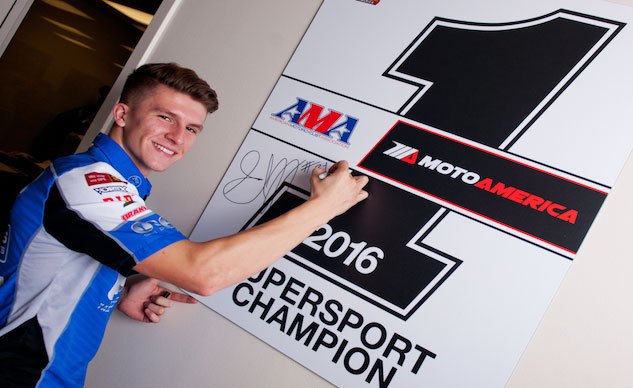

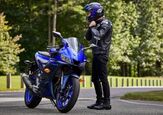
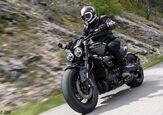

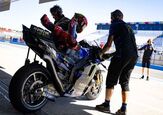

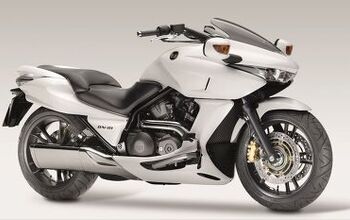
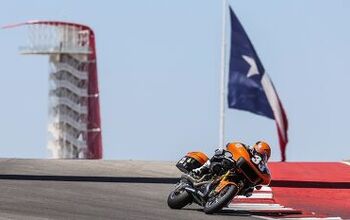


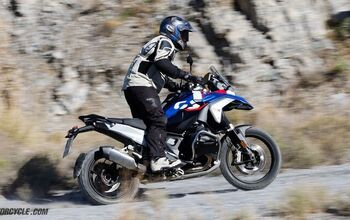
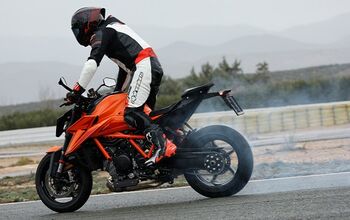

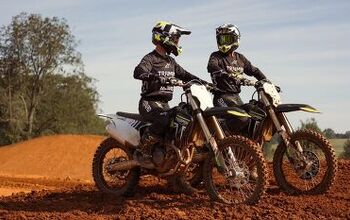

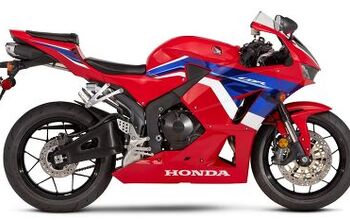

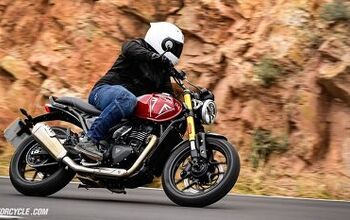
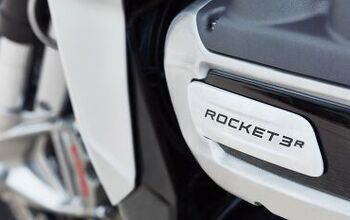
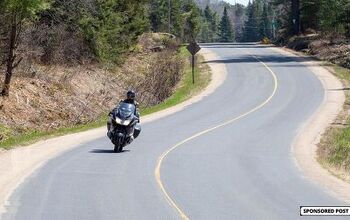
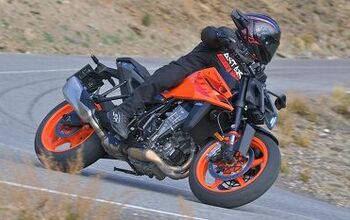


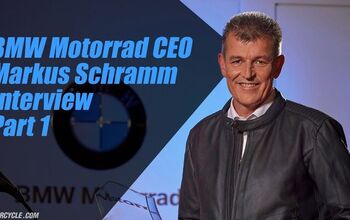
Comments
Join the conversation